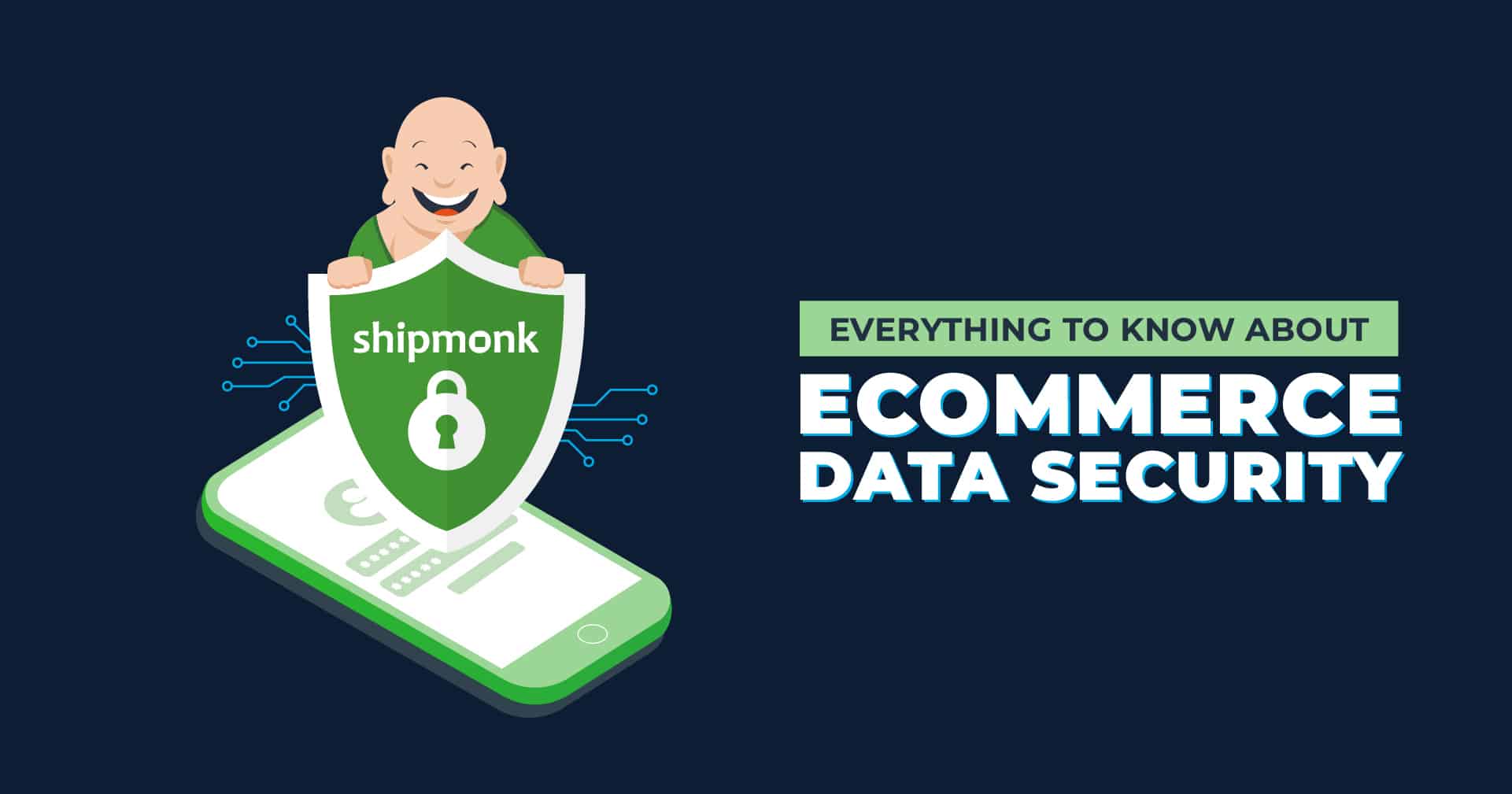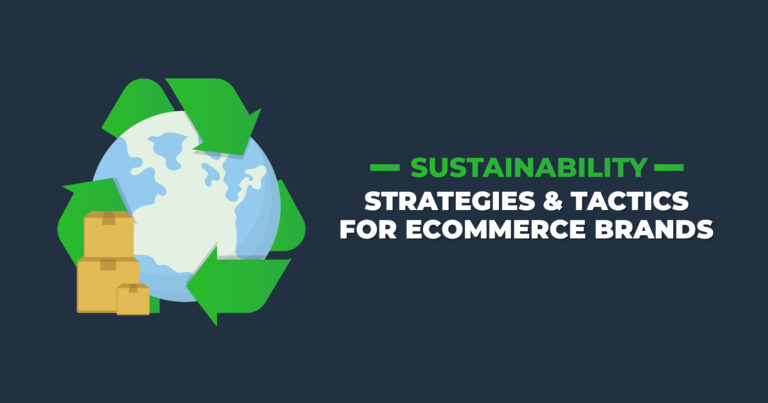Everything to Know about Ecommerce Data Security
Every ecommerce business that becomes a ShipMonk 3PL client is a priority. And every aspect of those brands is under our care and protection. For example, our advanced 3PL platform looks after every aspect of your supply chain in an efficient, effective way and our Virtual Carrier Network safeguards your shipping by always applying the best rates and speeds while not handcuffing you to any carrier.
That’s all well and good, but in a sense that’s surface level security. What about the things you don’t see that have just as much impact on the reputation of your brand? Of course we’re talking about your ecommerce store’s data security.
From installing in-depth ecommerce cybersecurity measures to staying up to date with the latest ecommerce cybersecurity certifications and evaluation standards, ShipMonk is a 3PL that takes every avenue to protect our clients’ data so your business is secure and your customers feel secure shopping there.
In this article we’ll discuss why multilayered ecommerce cybersecurity is important, the types of protection available, the main threats to your ecommerce store, and what ShipMonk does to protect your brand from them.
Why is Ecommerce Cybersecurity Important?
1.) Protecting Ecommerce Store Customers
Your ecommerce customers are at risk if information from your business is misused or not properly protected. It’s paramount you do everything to ensure their privacy, or they could be personally negatively impacted, in addition to their trust in your brand being negatively impacted.
2.) Exposure Through Data Transfer
When you work with any third-party vendors, data is transferred between platforms. It’s pivotal that the right cybersecurity measures are in place to prevent any hacking or theft during that transfer. Think a digital armored car to safeguard valuable goods from Point A to Point B. Without tight security, there is high risk involved.
3.) Securing Your Company’s Data
Lack of aggressive data security for your company’s private internal information can leave your ecommerce business vulnerable to data theft, cyber attacks, improper alteration or disclosure of information, misuse of software, and malware installation.
Data Security Protection
1.) Privacy
Preventing third parties from accessing private information is a high priority when running an ecommerce store. There are many digital tools to safeguard this valuable data and as a business owner you want to be thinking about internal business controls and external website controls that ensure good practices.
To secure your ecommerce store’s internal systems, consider things like employee access permissions (i.e. who can see the data?), data encryption protocols (i.e. protecting sensitive information by scrambling it to anyone who doesn’t have a special key to view it), and maintaining antivirus and firewall coverage (i.e. making sure your systems are constantly monitored for outside influence).
To secure your customers’ website experiences, brands will typically utilize encryption protocols like SSL to transmit electronic payment data. This is commonly displayed visually as that little “lock” icon in your browser’s URL box. Your ecommerce platform likely employs some level of database encryption as well, which ensures the database of customer information is kept secure and limited to only those that should be viewing it. It’s also common for a website (whether hosted individually or at a SaaS service like Shopify) to use antivirus and firewall coverage so the hosting environment and data transfer methods are continually monitored and protected from intrusion.
It’s essential to have all these ecommerce cybersecurity measures in place. Doing so means your customers feel secure shopping with you and you can manage the greater scope of your ecommerce business without worrying about people losing trust and choosing other competitors in the marketplace.
2.) Authentication
Authentication is a must-have layer of ecommerce cybersecurity that makes sure all parties involved in an online transaction are who they claim to be. There are many types of online authentication, like IP monitoring, address verification, credit card payment authentications, and occasionally two-factor authentication. Some sites even employ CAPTCHA protections on non-payment forms to limit spam from slowing down internal teams.
Threats to Ecommerce Data Security
Ecommerce stores cannot afford to ignore the fact that there are real threats to their private business data, and the personal data of their customers. The most common types of ecommerce cybersecurity threats include: hackers, software exploitation, spam, phishing, and denial of service attacks.
1.) Hackers and Software Exploitation
Most ecommerce stores either use a host SaaS (like Shopify) or they host an ecommerce cart software package on their own server. In either case, when the ecommerce cart, or related software working with it, are not kept up to date and security is not properly “patched”, the door opens for hackers to exploit vulnerabilities for informational gain. If this happens, at worst, client data and payment information is stolen.
At best, you’ve got nefarious people digging around in your ecommerce store’s system. The optimal way to routinely confirm your website code is up to date and “patched” is to ensure all known vulnerabilities are fixed. For SaaS-based solutions, you can refer to release notes and status updates. Many ecommerce stores offer automated updates or have dedicated areas to easily see when updates are available. But remember to also do this for all plug-in software (whether SaaS or hosted) used within your ecommerce store install. Just because your core ecommerce store code is “patched”, doesn’t mean you haven’t left doors open with your plug-ins. You need to continuously keep an eye on plug-in release notes.
2.) Spam
Most people are familiar with the concept of spam—not the salty Polynesian favorite; the annoying assailant that bugs people online through email, across social media, and via phone calls. However, while most people think of spam as irritating, it can also be super harmful and may pose serious problems to the health and functioning of your ecommerce store. Spam not only has the potential to infiltrate email; it can be used to generate fake negative reviews, fake leads, and fake contact form submissions. In some cases it can even place fake orders through your website if you’re not validating payment information. This can create nightmares for your inbound and Marketing Ops teams trying to pass business up the chain to Sales and/or Operations. Overall, this equates to:
- Wasted employee time trying to sort through real and fake interactions
- Slower page speed, frustrating customers trying to shop
- Potentially damaged brand reputation
- Havoc on your inventory, warehouse, and order fulfillment management
So What’s an Ecommerce Store to Do?
- Make sure your website and ecommerce platform code is updated.
- Employ CAPTCHA and anti-spam form implementations. Oftentimes these tools are available as free plugins.
- Ensure your ecommerce cart validates online payments at the time of checkout.
- In extreme cases, your website host or CDN service may utilize IP banning to prevent sustained attacks from bad actors.
- Have regular, proactive conversations regularly with your technical business teams (developers, IT, web host, etc.) to ensure your site is meeting ecommerce cybersecurity best practice standards, and is kept up to date.
3.) Phishing
This well-known ecommerce cybersecurity threat consists of fraudulent parties pretending to be real ecommerce businesses, or real people who work for existing ecommerce businesses. They do this as a means to “fish” for private or proprietary information. This problem can exist externally for an ecommerce store, trying to draw data out of your customers, or it can exist internally when phishing attacks attempt to con your employees into lowering the drawbridge to let the cyberthieves through.
Typically these emails will try to incorporate the ecommerce business’s name into the fake email address, have links to an existing website, or utilize familiar phrasing or imagery. This is all to catch passwords, usernames, steal personal data from customers, and/or gain access to an ecommerce store’s server and system.
Of course this could create a massive problem for your ecommerce business in the realms of compromised financial information and operational destruction. In terms of harming the customer specifically, if a phishing attack like this is successful, the fraudster could potentially place orders on their behalf to be sent to the scammer, which the company will need to refund the customer for, in addition to likely losing that customer’s business due to an “unsafe” appearance.
You can do your part to protect your brand from ecommerce cybersecurity threats by educating your staff, and keeping them alert of risks and warning signs. For added ecommerce data security in your arsenal, ShipMonk has the technology to take down potential threats across the board.
4.) Denial of Service (DDoS) Attacks
While “spam” and “phishing” are terms that many people who spend time online are familiar with, a lesser-known ecommerce cybersecurity threat that is actually more serious is called denial of service attacks, or DOS attacks. These involve the hacker issuing a complete shutdown of your ecommerce store—making it inoperable and/or unreachable for your staff, your customers, or both.
How is this accomplished? Hackers flood your ecommerce business’s internal servers with a crushing amount of “page requests”, specifically with the aim of crashing your website (for example an influx of general visits at a much greater capacity than your server can handle). They may also try to cut off your online accessibility entirely. In sum, their tactics intend to shut down your ecommerce store for as long as possible. This is as devastating as it sounds, and the repercussions on your brand’s operation and reputation are sizable.
***Similar to spam submissions (in the section above), your website host or CDN service may employ IP banning to prevent sustained attacks from bad actors.
Ecommerce Cybersecurity Measures Everyone Should Have
While every ecommerce store is unique in terms of products and branding, in terms of ecommerce cybersecurity measures, there are some things all online businesses should have:
1.) SSL certificates to encrypt payment data transfer. These are native features on almost all websites these days.
2.) Ecommerce databases that are encrypted with password protection, so if data is ever stolen, it is unlikely to be decrypted.
3.) PCI compliance, which is the credit card industry standard that you must secure customer data by if you’re going to be allowed to process it. Merchants must audit and verify annually (more frequently if you’re a larger ecommerce brand). If you’re accepting major payment methods, like Amex, Visa, Mastercard, etc. you need to be PCI-DSS compliant (4.0).
4.) Tying into PCI above, you need local access compliance. Basically you have to have rigorous standards for WHO can access WHAT and HOW. Example: your warehouse ops teams do not need access to card data, whereas your accounting department does.
5.) Consistency matters when it comes to guarding your ecommerce store against cybersecurity threats, as in: keeping things up to date should be a regular, and consistent activity. We recommend reviewing your data security policy and compliance with your IT and legal department at least on a monthly basis.
ShipMonk Cybersecurity Measures and Certifications
Privacy matters. ShipMonk does everything possible to handle your ecommerce business data with care. That’s why we are committed to staying up to date on the highest levels of security certifications, including SOC Compliance and SOC 2 Type I Certification.
SOC Compliance and SOC 2 Type 1 Certification
The SOC (System and Organization Controls) involves auditing processes developed by the American Institute of Certified Public Accountants (AICPA) to ensure service providers securely manage data and protect privacy for all clients and within their own organization. It is the standard for data security among digital companies in the U.S.
Certification consists of a detailed security exam issued by outside auditors. Completing the exam provides organizations with a report on their internal controls and how they protect customer data and sensitive information. Successfully completing the SOC 2 Type I examination means ShipMonk has proven operational effectiveness in the five “trust service principles”.
ShipMonk Success in 5 Trust Service Principles
1.) Security
Are the provider’s system resources protected against unauthorized access? Network/application firewalls, two-factor authentication, and intrusion detection are key.
2.) Availability
Is the accessibility of systems, products, and/or services up to par with the agreed upon standards in the SLA between client and provider? Monitoring network performance and availability, site fail recovery, and security incident handling are key.
3.) Processing Integrity
Do the provider’s systems achieve their purpose and handle data based on the set operating parameters? Monitoring of data processing and quality assurance procedures are key.
4.) Confidentiality
Is all confidential data (intellectual property, business plans, financial information, etc.) properly encrypted when stored and processed? Network/application firewalls and ironclad access controls are key.
5.) Privacy
Does the provider securely handle all personal data (set forth in a business’s privacy notice and AICPA’s generally accepted privacy principles, GAPP)? Strong cyber access controls, two-factor authentication, and encryption are key.
What Makes ShipMonk a Trusted Ecommerce CyberSecurity Provider?
With our SOC 2 recognition, ecommerce business owners gain proof that ShipMonk not only protects the safety of its customers’ data today, but it has the right standards in place to safeguard that data into the future. Our 3PL is recognized for its strengths in ecommerce cybersecurity through:
- An assessment of the design and operating effectiveness of our security controls.
- A thorough examination of the security of our vendors and third-party partners.
- A verified set of defined policies to ensure continued protection for customers and employees.
- The comprehensive process signifies our commitment to privacy and data security, and adherence to the availability and confidentiality standards developed by AICPA.
Our Commitment to Your Ecommerce Cybersecurity
What does all this mean for your ecommerce data security? At ShipMonk, we believe our clients should feel confident and have a clear understanding of how their data is being used and is being protected. We’ve spared no expense and have taken every step possible to provide ecommerce stores with the top-notch protection their data deserves.
Contact our 3PL today to discover how ShipMonk can securely help your operation continue to grow. We specialize in helping ecommerce stores of all sizes in all industry categories “stress less and grow more” with the finest ecommerce cybersecurity measures that you and your customers can rely on.



